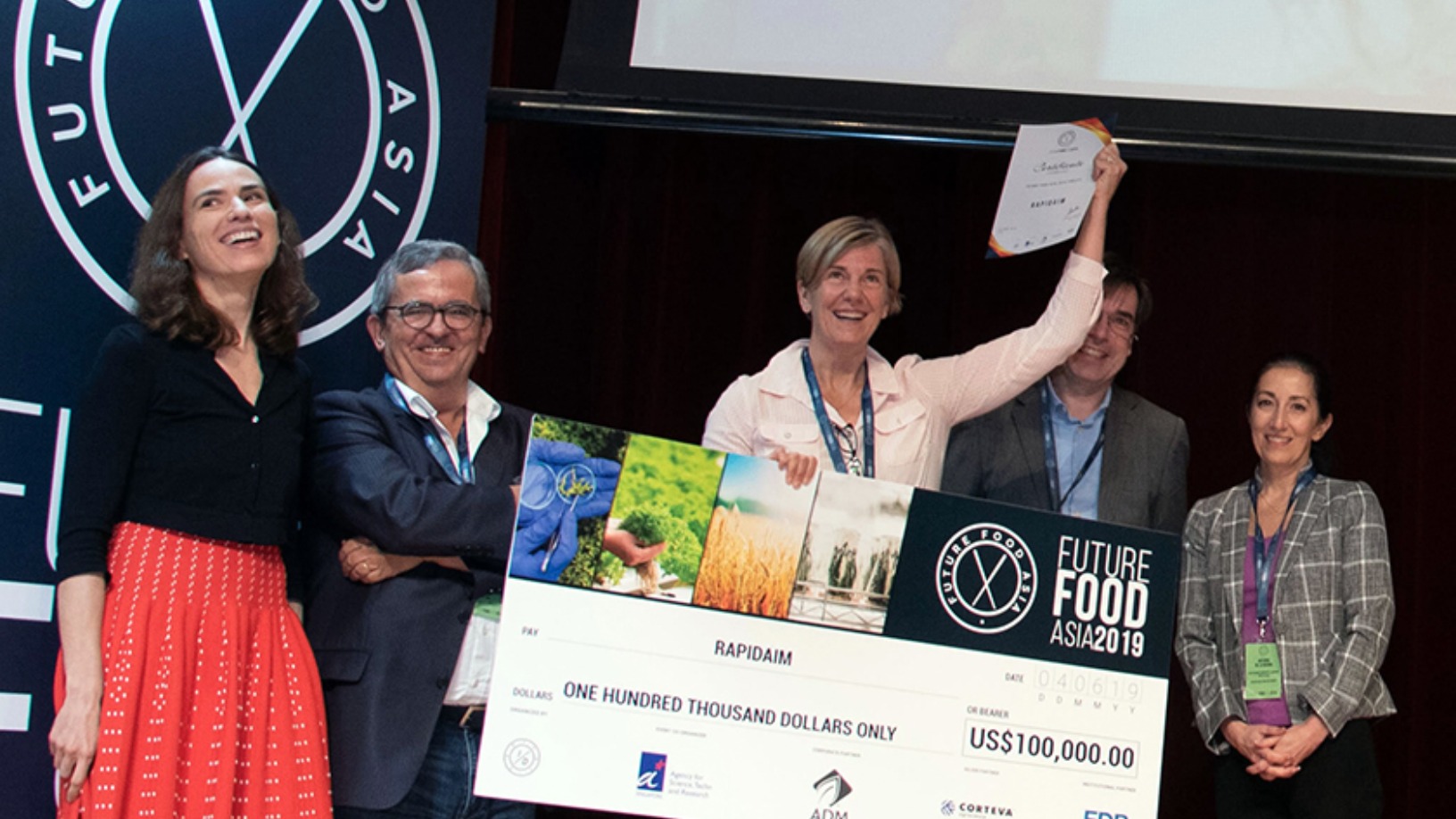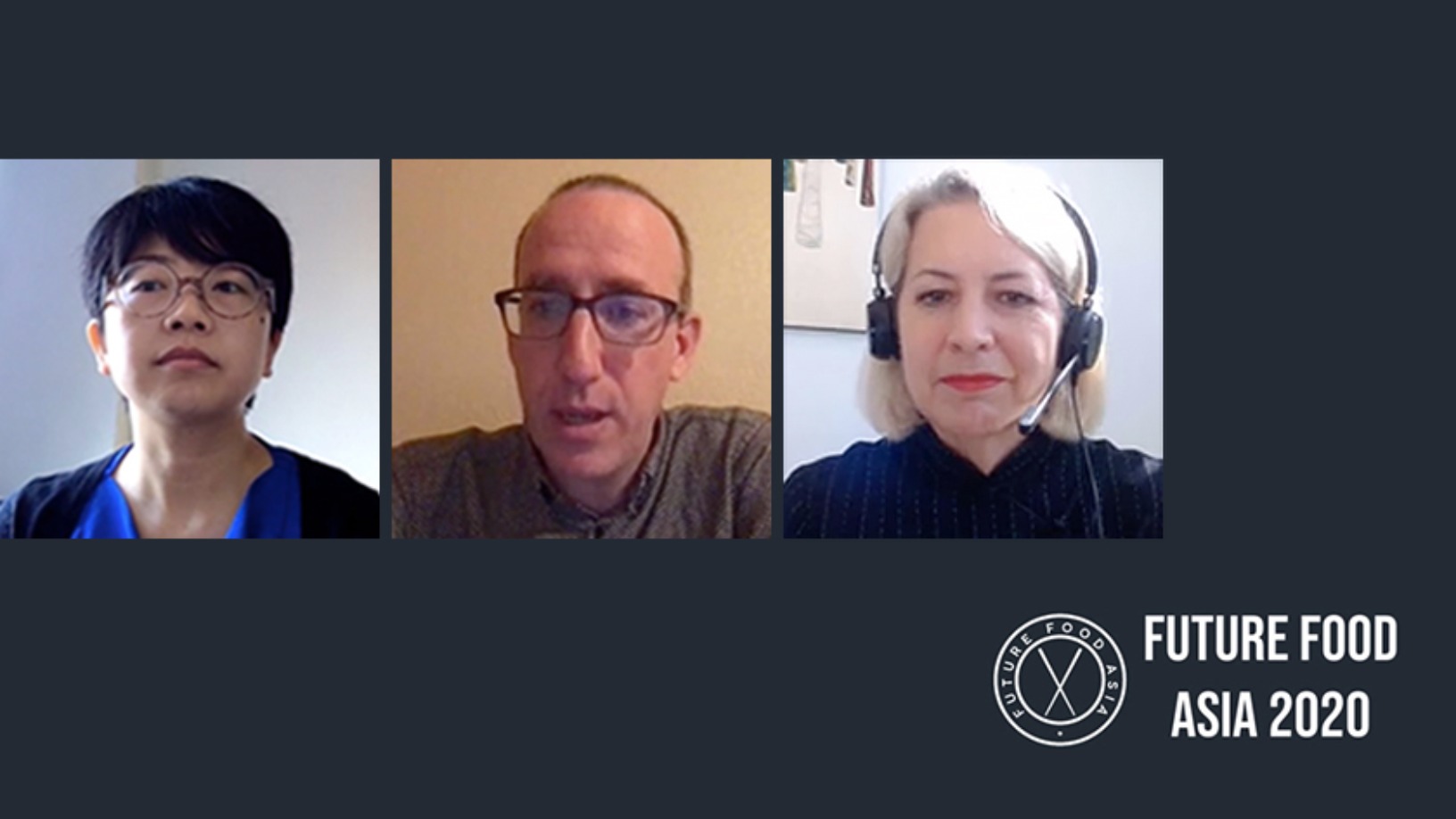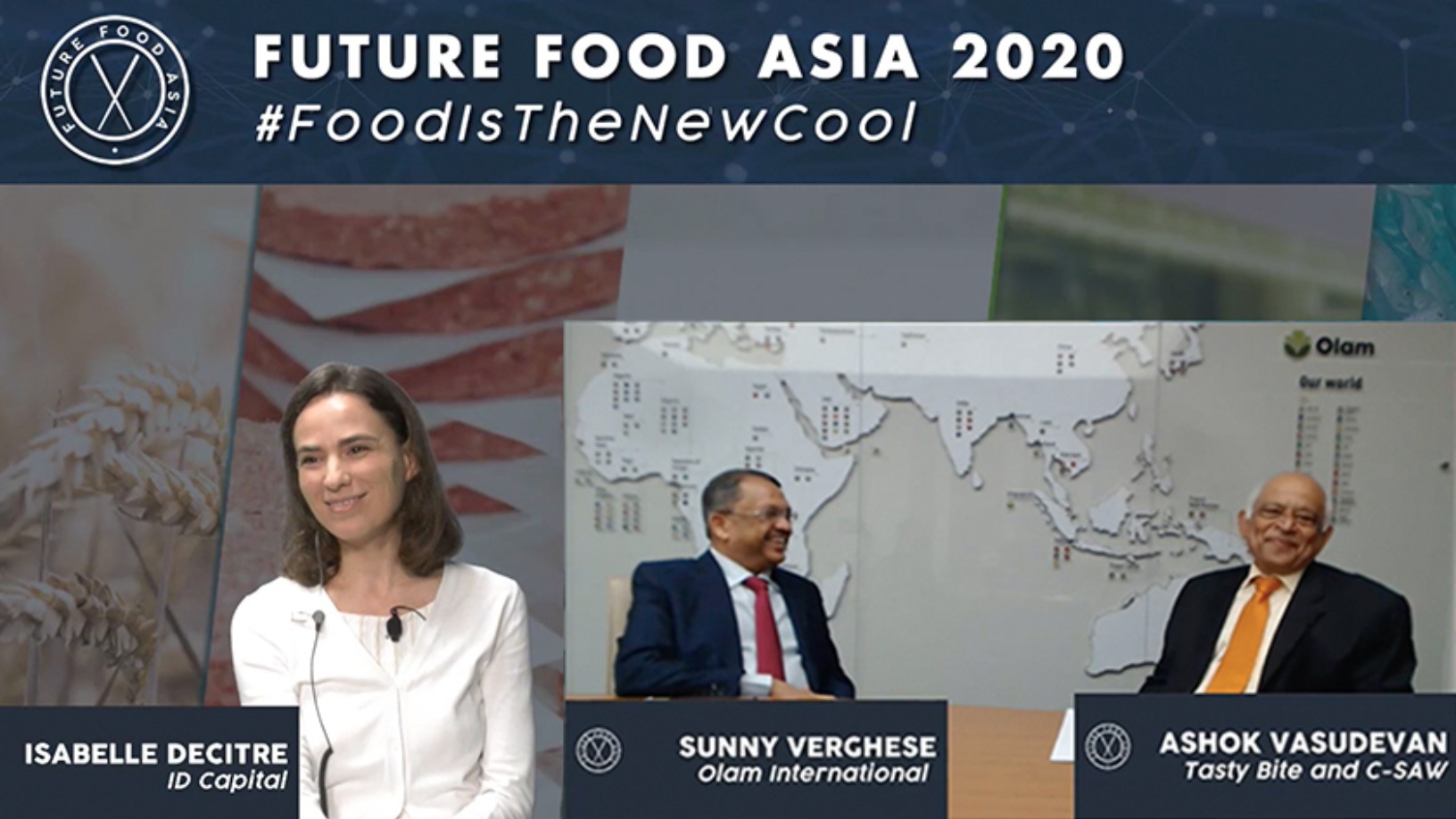When Isabelle Decitre and ID Capital, the Singapore-based private equity firm she founded and heads, created the Future Food Asia (FFA) conference in 2017, Asian agrifood technology was still a little-known sector. Investors and entrepreneurs were mostly looking at the trending markets of that time, namely ride-hailing, e-commerce and fintech.
However, Decitre, who prior to investing in agrifood had spent more than 20 years in the luxury and beverage sectors, believed in the potential and importance of agrifood tech in Asia, home to about 4.5bn people. Hence she created FFA to showcase innovative agrifood startups from the region, giving investors a ready set of benchmarks, conversations and networks that would help them enter a new market.
Three years on, agrifood tech has become the sector to watch in Asia. Investors – local and foreign; across VCs, CVCs and state investment firms – are seeking a variety of solutions, from drones, robotics and big data in precision farming, to alternative proteins and market access. For its 2020 edition, which took place September 21–25, FFA moved its meetings online because of the Covid-19 pandemic, thereby also extending its reach beyond Singapore.
In a post-conference interview, Decitre, who’s French, detailed the inspiration behind FFA, how it fits in ID Capital’s investment strategy, and what the conference series has achieved so far. This year, ID Capital also launched an urban farming education platform called Rooted, in partnership with Nevada-based Contain Inc.
This interview has been edited for length and clarity.
Why did you start the Future Food Asia (FFA) conferences?
In 2016, after two years of investing in agrifood tech, I had my eureka moment. I realized I was sitting in Singapore, in the middle of a very dynamic region with its own problems and stakes. Given the dynamics and the IT backbone of many countries here, there was no reason why there wouldn’t also be some agrifood tech talent emerging from Asia. And they can address the pain points better than anybody coming from the US or Europe.
I had started seeing some original startups in Singapore, China, India, Malaysia and Indonesia. But they were few and far between. And whenever I talked to people about agritech or foodtech, their idea of it was limited to data in agritech or food delivery. It was still very niche. And if you added “Asia” to agrifood tech, you’d lose everyone. They’d tell me, “What are you talking about? Asia is about e-commerce, B2C, cryptocurrencies.”
We want to give a voice to Asia-Pacific startups because we felt the entrepreneurs were very isolated. If investors didn’t think there were talent here, they would never get started. Meanwhile, if you’re a local entrepreneur in foodtech, and your only role models are from the Silicon Valley or the American Midwest, it’s very discouraging, because you cannot relate to them.
If you added “Asia” to agrifood tech, you’d lose everyone. They’d say, what are you talking about? Asia is about e-commerce, cryptocurrencies
I decided to create this conference to show that my investment thesis was based on solid facts, and to showcase the good entrepreneurs emerging from the region. I created the awards process to curate a set of finalists that were credible by industry standards, which means we can’t just be a hackathon or pitching competition. We brought to the attendees a diversity of startups they had never heard of.
In developing this conference, having the startups is important, but we also want to bring in elements that will help investors figure out what the founders are saying, and whether they are reasons to be endorsed by the industry at large. Any founder would be loud about his or her startup, but if you see Corteva or Dole say your innovation is interesting, then suddenly investors will look at you with a very different mindset. Where we make a difference is that we are one of the very first ones to feature diamonds in the rough.
This is the first year that FFA has gone online. What are some of the benefits of running the conference online?
When you hold an offline conference, you generally attract people who already have certain opinions about the issues, they know how they’d vote if they were polled. On the other hand, we have the more hesitant ones. The online format has lowered the barriers to entry, and it’s a nice way to develop your understanding without having to allocate an unreasonable amount of time. We’ve managed to attract the more hesitant ones, who otherwise wouldn’t have flown to Singapore just to attend this conference. We even have people joining from their vacation, which I’m really thrilled about.
We like welcoming people who are curious about the subject. Obviously, we have the “hardcore” activists who have the passion, and they naturally come to join us. But the ones we are very happy to welcome are the ones who don’t describe themselves as agrifood tech investors; the ones who compare these opportunities against e-commerce, fintech. We had 650 participants this year, and we’re very happy about the engagement.
My vision for the sector is that things will really start to change when every serious domain-agnostic VC investor will consider that it makes good business sense to have some agrifood deals.
My vision is for domain-agnostic VCs to consider it makes good business sense to have some agrifood deals
And have you seen this change in attitude?
We’ve seen people who have attended since the first year, in 2017, and they keep coming back. Gradually, they started to take action and get involved in deals. This year we have newcomers, who were in contact with us some way or another but might not have wanted to physically attend the conference. Now you see them asking questions to the startups, giving feedback.
The conference has been instrumental in catalyzing more interest, because people can meet and talk. One of the most off-putting things for investors is to look at a deal and have no benchmarks, no points of reference, nobody to talk to. So we provide them with insights and networks, so they can start forming their own opinions.
FFA touched on the often controversial topic of cannabis and hemp. Why did FFA decide to feature this topic?
I know very well the level of sensitivity surrounding these issues, but we need to feature the sector as it’s too big to be ignored. We have to look at the bigger picture and stick to the facts. Regulations are evolving, and there is a business opportunity. It can absolutely be regulated, and we only operate within legal boundaries. You might be surprised to hear that one of the most active biotech startups in the cannabis field is incorporated in Singapore.
We want to address this because few people understand what’s at stake. On the hemp side, you have industrial fibers that are more sustainable than cotton. On the cannabis side, there are many cannabinoids beyond tetrahydrocannabinol (THC) and cannabidiol (CBD) that can be explored. Secondly, it’s hemp and cannabis, together. The cannabis part attracts some controversy, but hemp is a sustainable business in itself, and a very interesting one.
One of the most active biotech startups in the cannabis field is incorporated in Singapore
Also, hemp and cannabis have high margins. If you look at the upstream part of the value chain, we see this as potentially driving agritech innovation by way of being early adopters of some technologies. It can be harder to innovate with food crops because the players are risk averse, and the margins are flattish. Most agritech innovations start with horticulture, where the margin is.
In the years since you started ID Capital, agritech has become a bigger priority, but it wasn’t that way when you began. Was it challenging to attract investment into FFA?
I’m immensely grateful to the Singapore Economic Development Board for their help. We came in the right time and place, we met their agenda and started working with them, as well as with Enterprise Singapore. We gained leverage with these bigger, more established entities when we speak in a single voice about the potential of agritech in the region.
We also won some interesting clients through our consulting practice. Some Southeast Asian governments asked about how they could foster agritech in their country, and how we could help. Interestingly we found that in every country, agrifood tech was always perceived as a very small thing, compared with other verticals.
But when you pull down the barriers like language and distance, and pull together the entrepreneurs and talents from the different countries, you see a very substantial volume of deals and people interested in the sector.
You also launched Rooted at this year’s Future Food Asia. What inspired the development of this urban farming platform?
It’s a joint initiative between ID Capital and Contain Inc. Nicola Kerslake, my partner from Contain, and I come from different walks of life: she’s deep into urban farming, indoor farming; I’m deep into the Asian ecosystem and agrifood tech. We combined our thoughts during the Covid-19 lockdown, and we realized that food resilience is a key concept to tackle. But consumer engagement is also a cornerstone to look at. If people don’t understand what it means to farm, they might not have the appreciation to buy locally farmed produce.
The second thing we realized is that your health, and the food that you eat, are the first line of defense against the coronavirus. Food is not just the calories and the energy you get, it’s also a way to be resilient in the face of situations like this. So the notion that food is the way to stay healthy becomes really important.
If people don’t know what it means to farm, they might not have the appreciation to buy locally farmed produce
Third, corporations are trying to find new ways to engage their employees. We combined this with the first two and we realized that many people want to learn. Employees want to enjoy the pleasure of farming but they don’t know where to start, and becoming a farmer is not something they think about. They are happy with their jobs, but what does it mean to belong to a corporation when you’re not seeing your colleagues anymore and your sense of community has disappeared?
We built Rooted inspired by the context that goes beyond the Covid-19 pandemic. We really feel like people want to reconnect with what they have on their plate. And we want to provide them with a way to do it, to participate, and be part of a community of people who are also trying to do it.
How far will home-scale urban farming contribute to food resilience, to the food supply chain as a whole?
It’s not just about the volume produced; it’s the notion of thinking through the supply chain, paying attention to provenance, being ready to pay the price, and trying the process yourself.
We are not at a stage where we can or want to quantify the expectations in terms of contribution to self sufficiency. We are not even aiming at self-sufficiency. We work with Dole, which produces fresh fruits and vegetables; they are not trying to make their employees produce their own food at volumes that would compete with their own business. That’s not at all the approach. The approach is to make everybody in the company an ambassador of change.
Where will Rooted be available?
At the moment, we are driven in our expansion by our clients. Technically, the platform is global. It just so happens that we are testing the product with clients based in Singapore, but we are expanding the experience in Southeast Asia with our third client.
We are already in discussions with clients in the US and very likely in the coming months, we’ll have something to announce. We won’t be available overnight in every single country, as we are driven by the corporations. However, these corporations are all big, multinational entities.












